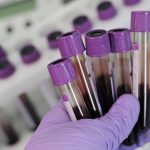
Immunosuppressed patients were found to exhibit impaired immune responses to treatment for Clostridioides difficile infection compared with patients who are not immunosuppressed, according to the results of a prospective study published in Open Forum Infectious Diseases. Although prior studies have shown that the antibody response to C difficile correlates with protection against symptomatic and recurrent infection, most studies do not include immunosuppressed patients. Therefore, data on this patient population are lacking.
Between June 2016 and February 2020, investigators prospectively enrolled adults who had a positive C difficile nucleic acid amplification test (NAAT) result, were initiating C difficile therapy, and had acute diarrhea with and without immunosuppression in the study and compared their levels of immunoglobulin M (IgM), IgG, and IgA enzyme-linked immunosorbent assay units (EU) to C difficile toxins A and B in serum and stool samples at 0, 3, and 10 to 14 days of treatment. Treatments included a vancomycin-containing regimen, a fidaxomicin-containing regimen, or metronidazole alone. Research staff called patients weekly for 10 days to assess their response to treatment and infection recurrence.
The final analysis included 47 immunocompromised and 51 non-immunocompromised patients; 39.2% of the immunocompromised patients were men, and the median age of this group was 62 years (interquartile range [IQR], 52-75). Approximately one-quarter (23%) of the non-immunocompromised patients were men, and the median age of this group was 66 years (IQR, 53-73). Vancomycin-containing treatment was given to more than 90% of patients in both groups.
Baseline serum anti-toxin A and B levels were similar between the groups. At day 3 from treatment initiation, immunocompromised patients had lower serum levels of anti-toxin B IgM (P =.051), anti-toxin A IgG (P =.004), anti-toxin A IgA (P =.012), and anti-toxin B IgA (P =.008). At days 10 to 14, immunocompromised patients had lower serum levels of anti-toxin A IgG (21 EU; IQR, 16.4-44.6) compared with non-immunocompromised patients (49 EU; IQR, 21.5-103; P =.045). Anti-toxin B IgA levels were also lower in immunocompromised patients compared with non-immunocompromised patients (P =.029).
Baseline stool concentrations of anti-toxin A and B IgA and anti-toxin B IgG were lower in immunocompromised patients compared with non-immunocompromised patients (P =.005, P =.002, and P =.016, respectively). At day 3, anti-toxin B IgA levels remained significantly lower in immunocompromised patients (6.7 EU; IQR, 1.9-13.9) compared with non-immunocompromised patients (18.1 EU; IQR, 4.9-31.7; P =.003).
There were 15 cases of recurrent C difficile infection (6 immunocompromised patients and 9 non-immunocompromised patients) with no difference in time to recurrence between the groups. The study was limited by the small cohort size.
The study authors highlighted several points that their research contributed to knowledge of C difficile immune response in immunocompromised patients, including the significantly lower anti-toxin A and B IgA levels in immunocompromised patients. As IgA is vital to luminal protection against microbial pathogens, “this finding raises the possibility that [immunocompromised patients] are unable to mount an adequate IgA response to replace IgA secreted into the lumen during [C difficile infection],” they wrote.
Source: Infectious Disease Advisor

















